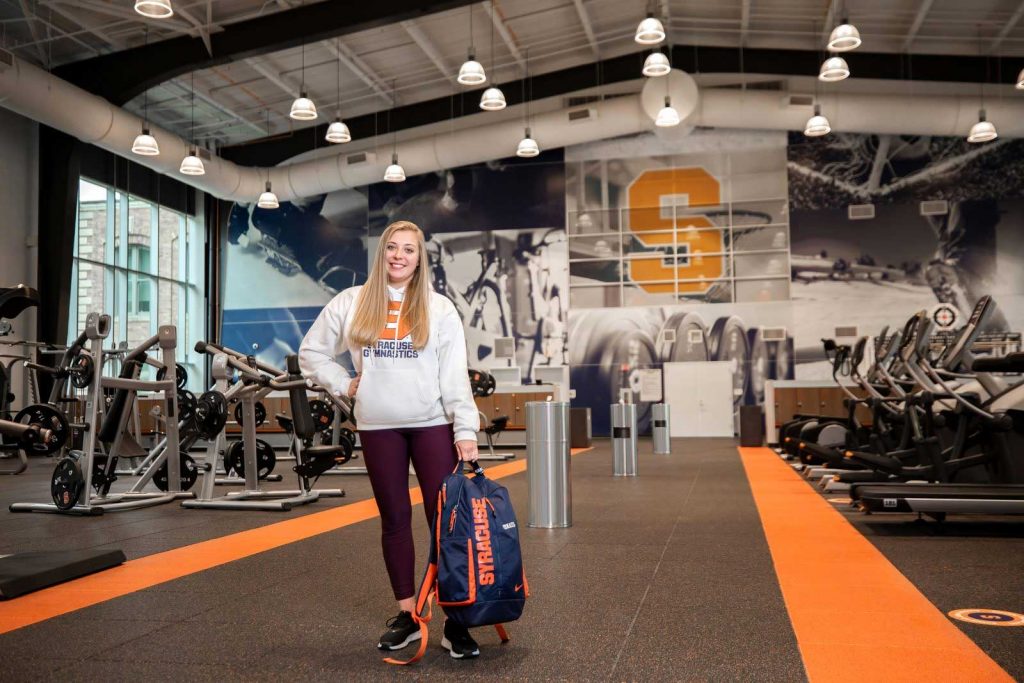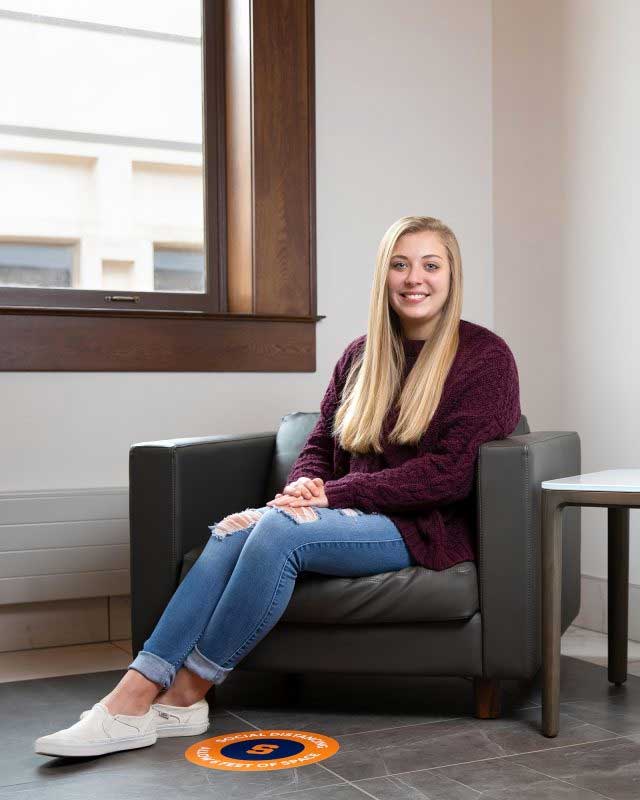
Not everyone has the patience to work with adolescents who are dealing with unhealthy substance use, but Alisamarie Yiatras ’21 embraces this work. She says she’s always been interested in learning about why people choose to use substances. Growing up, she and her father would watch medical television shows every night, and she found herself fascinated by the field.
Yiatras arrived at Syracuse University as a sophomore after transferring from the Rochester Institute of Technology. Originally on a pre-med track, she found herself drawn to psychology in the College of Arts and Sciences. After taking a child psychology class with Shannon Sweeney, she knew she had found her passion. “As soon as I took Professor Sweeney’s course, that solidified me wanting to work with children and adolescents,” says Yiatras.
Beyond the Classroom
Like many teenagers, Yiatras did her fair share of babysitting, and she was fascinated seeing the children move through the developmental stages of life. “Watching a child pick up on things once you teach them something is just so interesting to me.”

She took her studies beyond the classroom and lab when she started interning at the Center for Integrated Healthcare at the Syracuse VA Medical Center, which integrates mental health and primary care services for veterans through research, education and clinical consultation. Yiatras’ work with veterans (carried out remotely during the pandemic) includes role-playing on suicide prevention, allowing her to apply techniques she learned in an addiction studies course on motivational interviewing.
“The class was specifically related to addiction,” explains Yiatras, “and we did a lot of role-playing scenarios where one person would act as the clinician and the other would act as the patient. That’s been one of my favorite classes because I’m able to see it now in the real world during my internship and in the areas of psychology.”
In addition to her internship and research, she has also served as a Be Wise peer educator, providing health and wellness education related to substance use.
Transferring to Syracuse
Yiatras, the first in her family to attend college, is grateful for all the opportunities to fulfill her passions at Syracuse University, especially since she started out at another institution where she didn’t feel quite right. Growing up in Central Square, New York, she’d always known about Syracuse University but didn’t apply there initially because it felt too close to home.
Her transition to Syracuse was eased by joining the gymnastics team. “It was difficult at first because I wasn’t living in a dorm, so I really had to figure things out for myself in terms of what I wanted to be involved with on campus,” she says. Her teammates often invited her to stay over rather than drive back up north during snowstorms. “It made me feel like I had people who were here for me and who cared.”
Eager to give back to the community that has welcomed her, Yiatras became a transfer transitions leader to mentor other students who have transferred to Syracuse University. Although the mentoring has been particularly challenging this past semester due to COVID-19, she enjoys talking with new students and answering their questions. “It’s really helpful to be in the position that I’m in because I’ve gone through the process myself,” she says. “I just love being able to connect and be a resource for them.”
Looking Toward the Future
Yiatras is already anticipating what comes after graduation. She’s been busy applying to graduate schools throughout the Northeast, including Ph.D. programs and mental health counseling programs. “Either way, I know I still want to continue on with my education. I love learning.”
She wants to go on without taking a gap year, and she credits her professors at Syracuse for instilling that enthusiasm for her chosen field. “Seeing how passionate my addiction studies professors are makes me want to pursue my career even more, especially when I hear their clinical stories and experiences. I always think, ‘Oh, I can’t wait until I can do that!’”
A Syracuse University Story by Lisa Maresca originally published on January 14, 2021.
